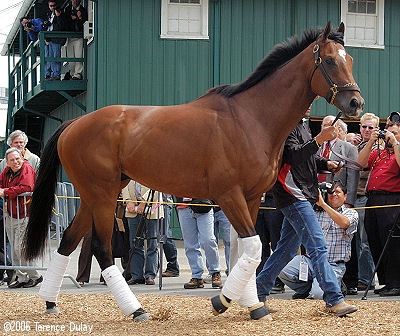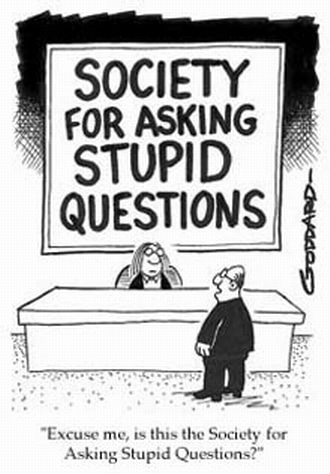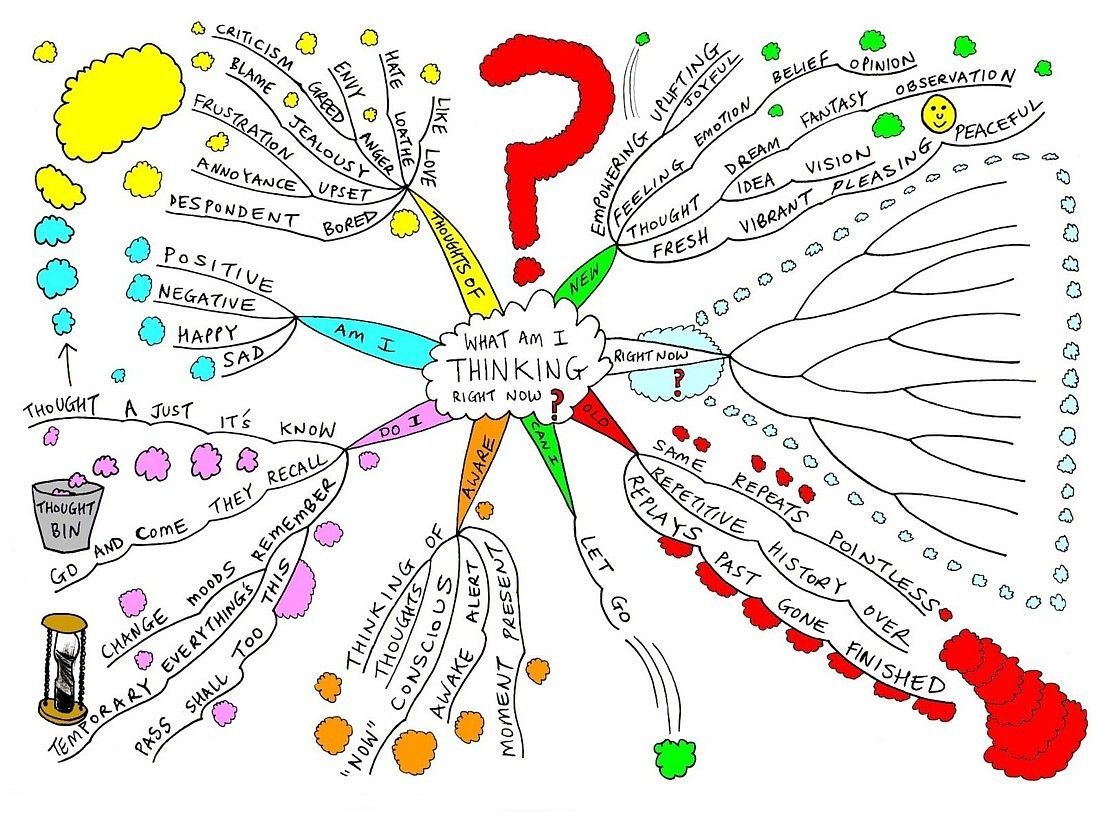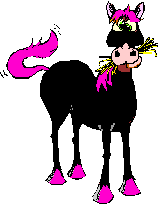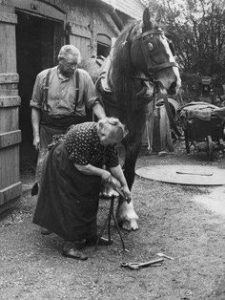 I’ve been taking care of horses for over three decades. I’m a bit of a student of veterinary history, as well. All of this experience and study has highlighted one basic human medical instinct. That is, when somebody sees something that is wrong (or that they think is wrong) they want to do something about it. That’s mostly a good thing, I think.
I’ve been taking care of horses for over three decades. I’m a bit of a student of veterinary history, as well. All of this experience and study has highlighted one basic human medical instinct. That is, when somebody sees something that is wrong (or that they think is wrong) they want to do something about it. That’s mostly a good thing, I think.
But here’s a question for you. It’s not one for which there’s a right answer. Just something to think about. It’s a psychology-type question, I suppose. Here you go – Is it more important to do something for your horse, or is it more important to do something that does something?
Over time, and over cultures, people have chosen to provide some very curious treatments to horses. In the 6th Century, in China, as written in the Qiminyaoshu, the first printed material on horse medicine from that part of the world, a decoction of otter feces was prescribed for some conditions. In much of the rest of the world, it was bleeding – letting blood out of the veins for various and sundry purposes. There are literally thousands of examples. I’m certainly not trying to make fun of historical practices, it’s just that, throughout history, people have seen horses with problems and they’ve wanted to do something about them.
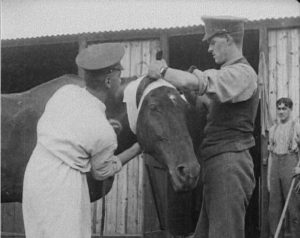 Just like now.
Just like now.
These things that people did throughout history were eagerly and earnestly endorsed by experts (at the time). Seriously. People wrote books with all sorts of information about how to take care of horse problems. They filled them with treatments that they must have thought were effective – otherwise, why would they have written about them? They didn’t understand basic things that we know now about horse medicine, such as how bacteria can cause disease (to name one of many) but they certainly did try to do things to help horses. Creative things. Inventive things. Useless things.
Just like now.
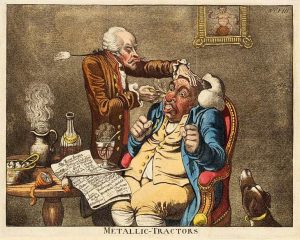 In the late 18th century, Elisha Perkins, a Connecticut physician and sometime mule trader, advocated the use “metallic tractors” for the treatment of various diseases of humans: horses, too. The person using the tractors (which were just small magnetic wedges) just needed to wave them of an injured area for a few minutest to, “Draw off the noxious electrical fluid that lay at the foot of suffering.” People who used the tractors perceived immediate benefits. They reported their testimonials. Dr. Perkins became very rich. Unfortunately, he also contracted yellow fever in 1799 while trying to apply a useless antiseptic that he also invented. He died that year – as far as I know, either the tractors didn’t work or someone forgot to use them.
In the late 18th century, Elisha Perkins, a Connecticut physician and sometime mule trader, advocated the use “metallic tractors” for the treatment of various diseases of humans: horses, too. The person using the tractors (which were just small magnetic wedges) just needed to wave them of an injured area for a few minutest to, “Draw off the noxious electrical fluid that lay at the foot of suffering.” People who used the tractors perceived immediate benefits. They reported their testimonials. Dr. Perkins became very rich. Unfortunately, he also contracted yellow fever in 1799 while trying to apply a useless antiseptic that he also invented. He died that year – as far as I know, either the tractors didn’t work or someone forgot to use them.
Sewn into boots and blankets, magnets are still advocated as therapeutic devices today (they hit their most recent high point in the late 20th century, but they’re still around).
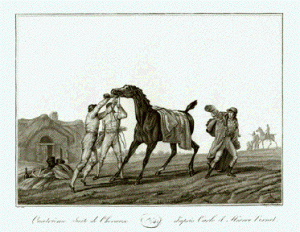 I could go on and on (and on). What’s got me curious, however, is not the history. Rather, it’s the persistent drumbeat of ineffective therapies, supported by eager testimonials and sincere experts, that has resulted in a non-stop stream of useless therapies that have been and are being applied in the name of medicine. It got me wondering about the question that I started with: When it comes to choosing something to do to or a horse, what’s more important? Is it more important to do something that works, or just to do something?
I could go on and on (and on). What’s got me curious, however, is not the history. Rather, it’s the persistent drumbeat of ineffective therapies, supported by eager testimonials and sincere experts, that has resulted in a non-stop stream of useless therapies that have been and are being applied in the name of medicine. It got me wondering about the question that I started with: When it comes to choosing something to do to or a horse, what’s more important? Is it more important to do something that works, or just to do something?
I think I understand where many horse owners are coming from (so do many merchants). They’ve made a significant investment of time and money. Often, there’s an even bigger investment in love. There may be an investment in hope and expectation – for a young colt that may grow up to be a breeding stallion, for a gelding with springs in his legs that may win Grand Prix competitions, for a top mare that could produce other top cutting/dressage/reining/racing/eventing/etc. prospects. They want their horse to live up to their hopes and dreams (sometimes even if they have unrealistic hopes and dreams). They want to take care of an animal that is precious. I understand that. I do that, myself with my own horse.
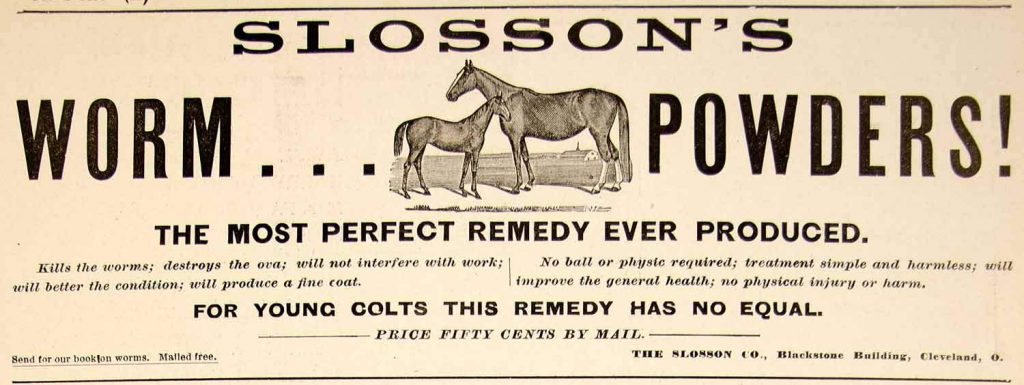
Still, I think that, when push comes to shove, many people just want to do something. They want to feel empowered over their horse’s care. They want to feel a sense of control. Doing something is also a bit of a self-fulfilling prophesy. It’s almost ironic. Here are a few facts.
 People who spend more money on their own health care feel as if they are doing a better job taking care of their own health. I think that it’s likely to be that way in horses, too. If you spend money on something, you’ll likely feel that you’re doing a good job taking care of your horse. This means that whether you spend on treatments, products, supplements – whatever – you’ll likely feel pretty good about what you’re doing. You’re being driven by good motives. If you’re motivated that way, I think that your horse is lucky to have you.
People who spend more money on their own health care feel as if they are doing a better job taking care of their own health. I think that it’s likely to be that way in horses, too. If you spend money on something, you’ll likely feel that you’re doing a good job taking care of your horse. This means that whether you spend on treatments, products, supplements – whatever – you’ll likely feel pretty good about what you’re doing. You’re being driven by good motives. If you’re motivated that way, I think that your horse is lucky to have you.
But is it more important to do something, or to do something that does something?
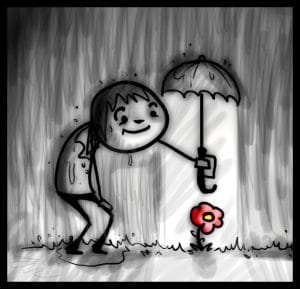 When people spend money on something for their own health care, they’re also likely to see benefit. There’s this thing called “cognitive dissonance,” whereby it’s hard for people to admit that they’ve wasted money on something that was ultimately useless. It’s hard as in, “Psychologically hard,” that is, people don’t like feeling like they’ve wasted time and money. So, instead, they see benefit. I think that’s likely to be the case in horse medicine, too. If you spend lots of money on something or someone, it’s a motivator to see that money as well spent. It’s curious, but true.
When people spend money on something for their own health care, they’re also likely to see benefit. There’s this thing called “cognitive dissonance,” whereby it’s hard for people to admit that they’ve wasted money on something that was ultimately useless. It’s hard as in, “Psychologically hard,” that is, people don’t like feeling like they’ve wasted time and money. So, instead, they see benefit. I think that’s likely to be the case in horse medicine, too. If you spend lots of money on something or someone, it’s a motivator to see that money as well spent. It’s curious, but true.
But is it more important to do something, or to do something that does something?
And here’s the really weird thing. In human medicine, even when people spend more money, and even when they’re happier and more satisfied, they tend to be sicker. They tend to die at a higher rate. Nobody has looked at such a thing in horses. But it’s curious, isn’t it?
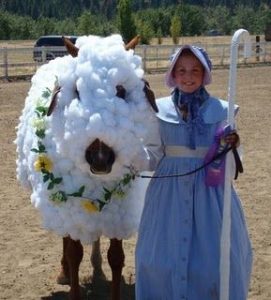 I’m always curious about the things that people do to and for their horses. I prescribe and, to me, it’s important that I prescribe something that does something – I don’t think I should merely be giving people something to do (and have them pay for it). So, it also strikes me as curious that often, when I suggest that a treatment might not effective, when I suggest to people that they might be able to save some money and STILL provide good care for their horse, I routinely get pushback from people who are convinced that I’m wrong or ignorant or in the pocket of some company or… you can read the comments on Facebook. Still the fact is that even though not all treatments are effective – many are ineffective – if a person spends money on something that person is also likely to feel good about it, even if that makes horse owning more expensive and complicated than it needs to be.
I’m always curious about the things that people do to and for their horses. I prescribe and, to me, it’s important that I prescribe something that does something – I don’t think I should merely be giving people something to do (and have them pay for it). So, it also strikes me as curious that often, when I suggest that a treatment might not effective, when I suggest to people that they might be able to save some money and STILL provide good care for their horse, I routinely get pushback from people who are convinced that I’m wrong or ignorant or in the pocket of some company or… you can read the comments on Facebook. Still the fact is that even though not all treatments are effective – many are ineffective – if a person spends money on something that person is also likely to feel good about it, even if that makes horse owning more expensive and complicated than it needs to be.
Still I wonder. Is it more important to do something, or to do something that does something? I’d love your thoughts.


